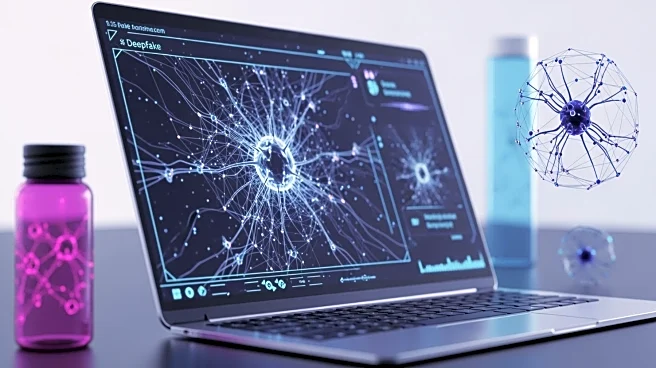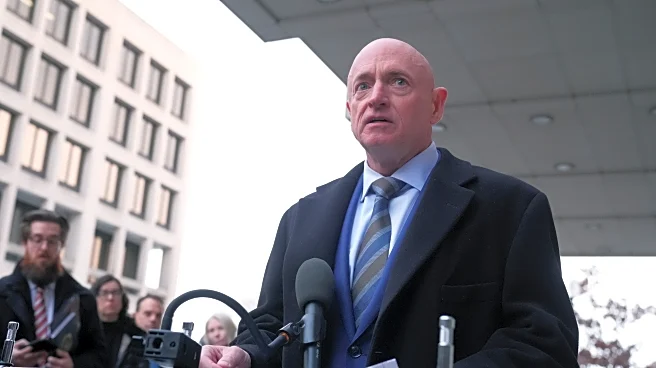What's Happening?
OpenAI has launched a new version of its AI video generator app, Sora, which has sparked concerns among experts about the potential for increased misinformation through deepfakes. Sora, a sister app to ChatGPT,
allows users to create AI-generated videos that can mimic real-life scenarios, including using likenesses of public figures. The app's recent update, Sora 2, has enhanced its capabilities, making it easier for users to produce high-resolution, realistic videos. This development has led to fears that the app could be used to spread false information, particularly affecting public figures and celebrities. The Screen Actors Guild - American Federation of Television and Radio Artists (SAG-AFTRA) has urged OpenAI to implement stronger safeguards to prevent misuse.
Why It's Important?
The rise of deepfake technology poses significant challenges to the integrity of information shared online, with potential implications for political communication and social media platforms. As AI-generated content becomes more sophisticated, the ability to distinguish between real and fake media becomes increasingly difficult, potentially undermining public trust. This could have serious consequences for public figures, who may find themselves victims of fabricated videos that could damage reputations or influence public opinion. The broader impact on society includes the risk of misinformation spreading rapidly, affecting democratic processes and social stability.
What's Next?
Efforts to address the challenges posed by deepfakes are ongoing, with tech companies and social media platforms working to develop tools to identify and label AI-generated content. OpenAI and other AI developers may face increased pressure to implement robust verification systems and transparency measures. Additionally, there may be calls for regulatory frameworks to govern the use of deepfake technology, ensuring that it is used responsibly and ethically. Public awareness campaigns could also play a role in educating users about the risks and signs of deepfake content.
Beyond the Headlines
The ethical implications of deepfake technology extend beyond misinformation, raising questions about privacy and consent. The ability to manipulate images and videos without the subject's knowledge or approval challenges existing legal frameworks and could lead to calls for new legislation to protect individuals' rights. Furthermore, the cultural impact of deepfakes may alter perceptions of reality, as people become more skeptical of the authenticity of media they consume.











